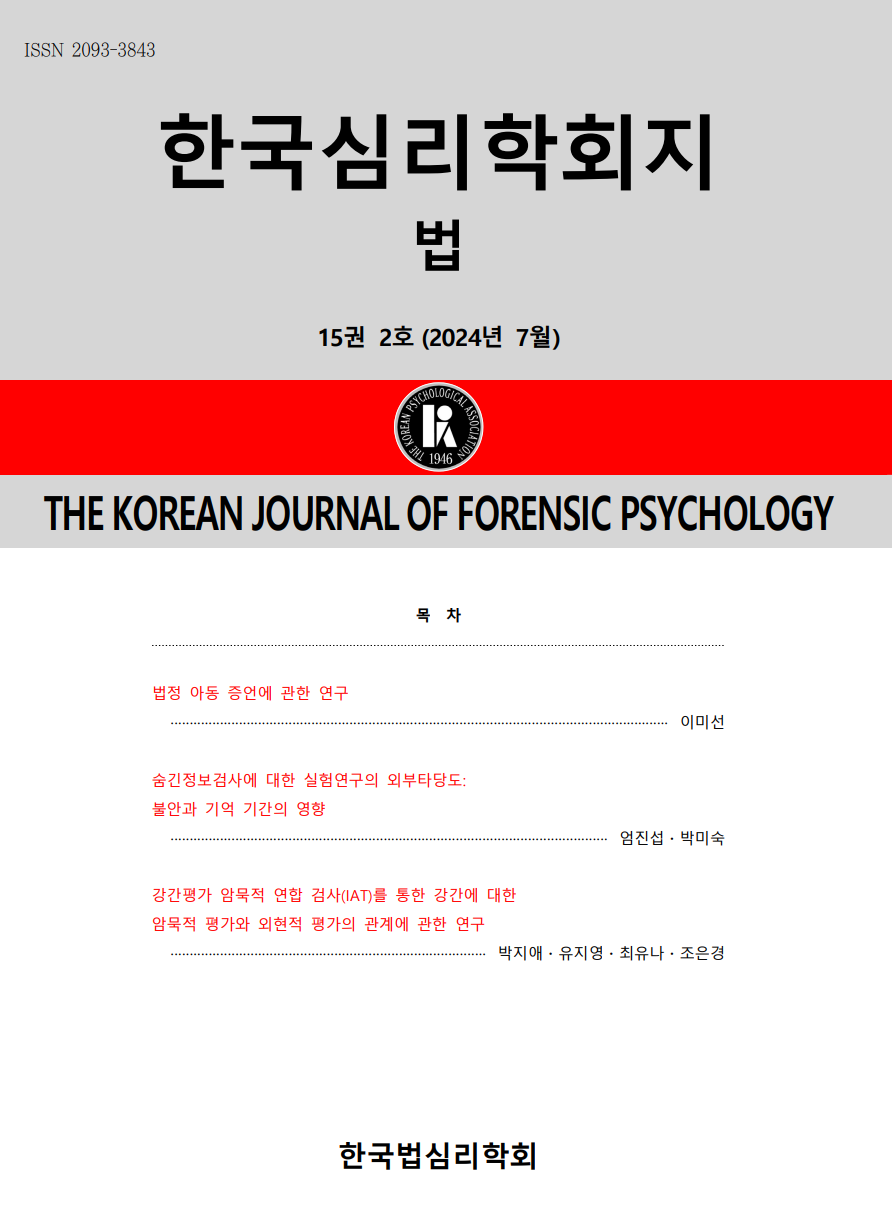open access
메뉴
open access
메뉴 ISSN : 2093-3843
ISSN : 2093-3843
When a child becomes a victim of sexual violence, the victim’s statement often serves as the sole confirmation of what happened. However, the integrity of the statement is subject to the child’s age, cognitive abilities, personality traits, and communicative aptitude. Furthermore, the unfamiliar setting of a court testimony may induce stress and anxiety in child victims, leading to a decrease in the accuracy and concreteness of their statements, especially when the investigative interview is significantly delayed or repeated. Empirical evidence indicates that an affirming demeanor on the part of the investigator positively influences both the quantity and quality of a child’s statements. Conversely, the use of leading, succinct, or equivocal and intricate questions attenuates the precision and specificity of the statement. Notably, media scrutiny exacerbates the predicament for child victims, fostering skepticism regarding the reliability of their statements and imposing psychological duress. In light of these challenges, recommendations to mitigate secondary harm and secure meticulous and precise statements from children include, firstly, conducting court testimonies within environments tailored to the needs of juveniles to mitigate unfamiliarity-induced anxiety. Secondly, providing comprehensive education to children on court procedures and testimony methodologies preceding the actual testimony. Thirdly, engaging seasoned investigators possessing expertise in child development, psychological characteristics, and interview techniques to mediate court testimonies. Moreover, perpetual educational initiatives are imperative for judicial experts. Finally, the formulation of legislation pertaining to witness examination procedures, cognizant of the distinct features of child development, is deemed necessary.